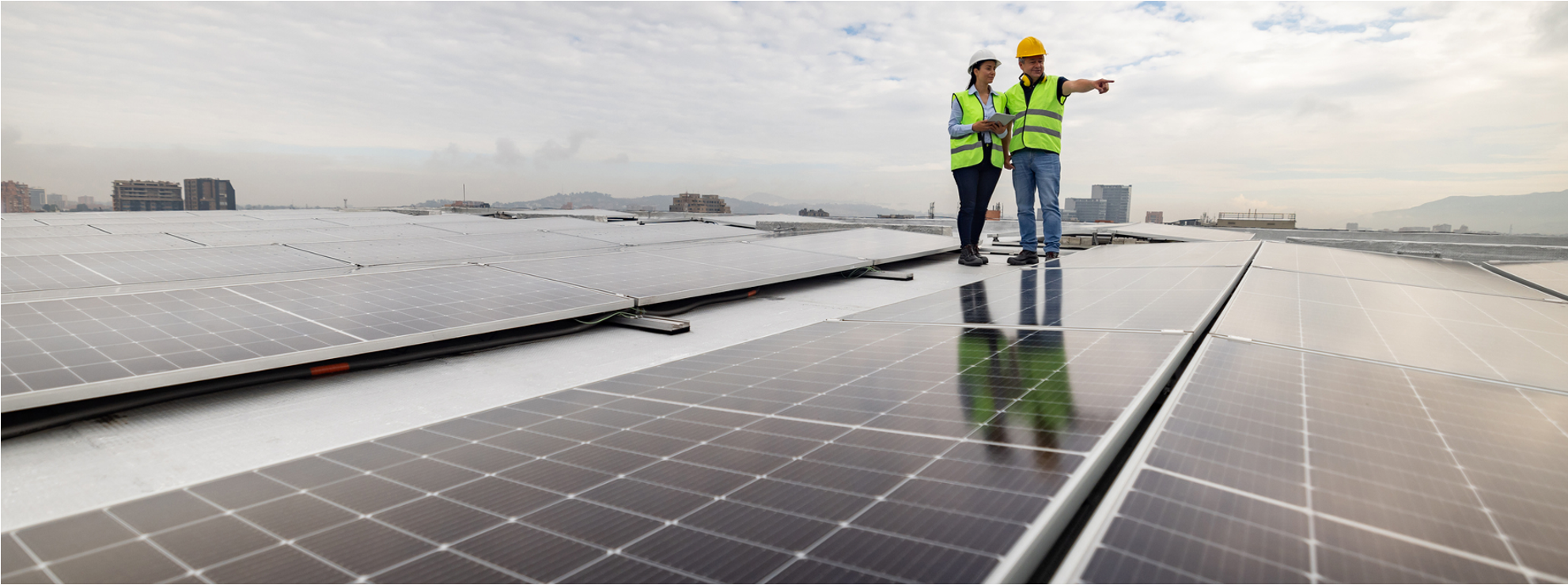
Our News
Being a Steward of the Planet in an Energy-Intensive Industry
December 4, 2023

Tim Maines
Chief Technical Operations and Quality Officer, Alnylam Pharmaceuticals
One of the great challenges of scientific and technological progress is that occasionally our intent to benefit human health can negatively impact our planet's health. Modern medicines are made through chemical processes, medical devices are made of plastic and polymerized molecules, materials needed to facilitate hygiene and sanitation are single-use and disposable, and a significant amount of energy is consumed during research and development, manufacturing, testing and distribution.
At Alnylam, we recognize our responsibility to minimize our impact on the environment and consider what additional actions we can take as a company to improve the health of the planet. We also know that we are in the early stages of our journey and that we will continue to have the opportunity to be more responsible and sustainable as our work evolves.
Being Thoughtful About Our Manufacturing
Since the founding of Alnylam in 2002, we have taken deliberate steps to understand and address the environmental impact of our footprint. This includes how we design and expand Alnylam’s internal manufacturing operations. We pioneered RNAi (RNA interference) therapeutics when there was no blueprint for how to make them, and no model we could follow to ensure that ours was a sustainable manufacturing operation.
Today, throughout our manufacturing system and operations, we carefully consider energy and water usage and waste disposal. Guided by our Technical Operations and Quality (TOQ) team of facilities management, manufacturing, and engineering experts, over the last five years we have established new systems to measure, assess, report on, and mitigate our greenhouse gas emissions across these facilities as well as our offices, labs, transportation fleet and in our supply chain.
A good example is the recent contracting of a local logistics service provider along with local inventory warehousing in Movianto, Spain, which was previously serviced from Arvato, Germany. This change has resulted in the efficient grouping of deliveries with optimized routing to customers resulting in reduced CO2 emissions and the amount of insulated packing materials that are needed. We expect that just this one change will help Alnylam save approximately 1.47 tons of CO2 per year.
Commitment to Corporate Responsibility
In 2020, Alnylam launched our formal Corporate Responsibility program. This program consists of five key pillars, including the Planet Pillar with specific sustainability and environmental-impact objectives and initiatives. Each year, we’ve endeavored to expand these initiatives and to improve on existing ones, and we make this progress publicly available in our annual Corporate Responsibility Report. We invite you to download our latest report here.
Some key highlights from our Planet Pillar over this past year include:
- Completed third-party verification of 2022 Scope 1, Scope 2, and select Scope 3 Green House Gas emissions data to ensure accuracy, reliability, and progress.
- Completed our first disclosure of water use data, with collection and analysis of 2022 water use underway to evaluate reduction and reuse opportunities.
- Identified ongoing opportunities to minimize waste and increase reuse and recycling initiatives, including forming a partnership with the non-profit Seeding Labs to divert lab equipment and supplies to scientists in developing countries as well as preparing to implement a pilot with the non-profit My Green Labs in select R&D and QA/QC laboratories.
Sourcing Renewable Energy for Energy-Intensive Operations
In 2021, we determined that the way in which we source energy for our manufacturing facilities is a key opportunity to improve the sustainability of our operations. Specifically, we have invested in sourcing renewable energy for our Norton and Alewife facilities. These are the only sites where we have full operational control, with Norton being Alnylam’s biggest manufacturing facility. As of January 2024, 100 percent of purchased energy at our Norton and Alewife Massachusetts manufacturing facilities will be sourced from certified renewable energy sources. This achievement will bring our Scope 2 market-based emissions to zero at both sites.
We also understand that labs and people consume large amounts of energy, whether through HVAC temperature control, specialized automated equipment, or other sources. Through renovations to existing spaces, partnerships with leased facility owners, power purchase agreements and renewable energy credits (RECs), we continue to identify opportunities to reduce our emissions as we grow. For example, Alnylam’s new leased office in Munich, located in the eco-friendly Skygarden Complex, runs on green power and has been certified as ‘Gold’ by the U.S. Green Building Council.
We know that being a steward of the planet is a continuous journey for companies and requires the dedication of employees at every level. We look forward to celebrating and sharing more successes, key learnings, and challenges ahead. In the near term, we plan to align our reporting with The Task Force on Climate-related Financial Disclosures (TCFD), expand our Scope 3 Green House Gas emissions data collection, and prepare for emerging regulatory requirements.
This is crucial work for Alnylam as we endeavor to have the same positive an impact on the health of the planet that we aim to have on human health through the medicines we discover and make.





